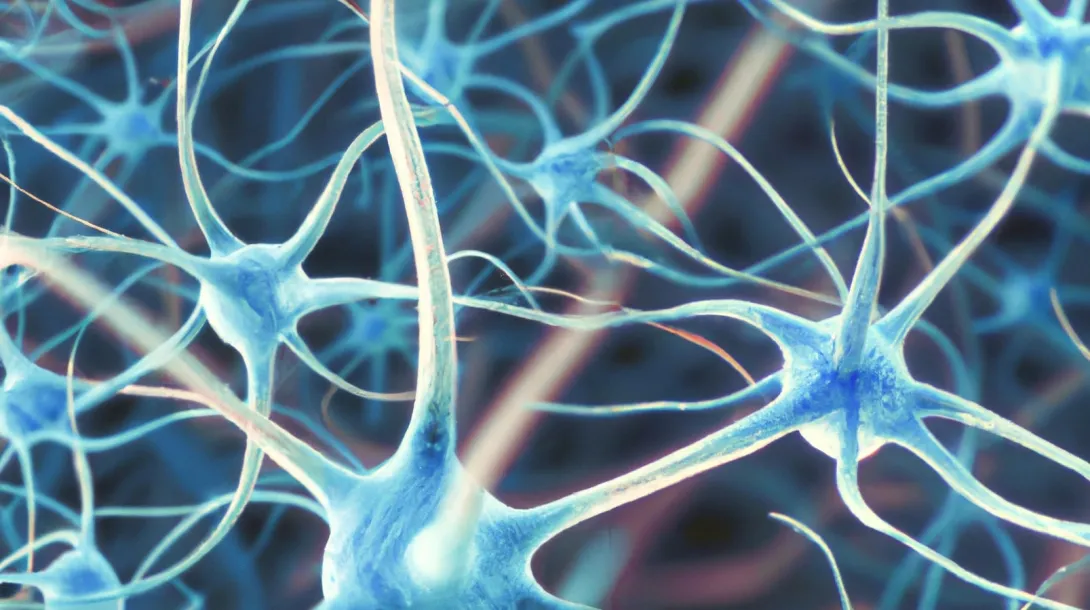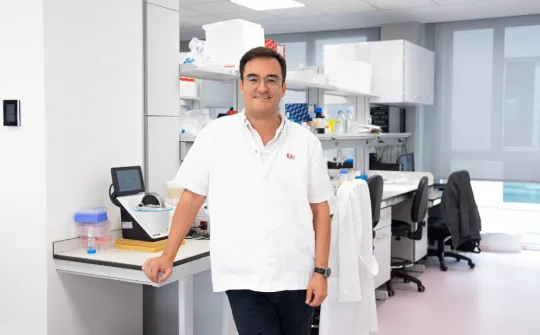"A better understanding of encephalitis allows us to provide increasingly more specific treatment"

Thaís Armangué, head of the Neuroimmunology Unit at SJD Barcelona Children's Hospital, explains how to treat this condition in pediatric patients.
World Encephalitis Day is celebrated on the 22nd of February; some 1,200 new cases of the disease are diagnosed in Spain every year, according to figures published by the Sociedad Española de Neurología (SEN), the Spanish Society of Neurology. Some causes of encephalitis are particularly common in children and most of them are studied or referred to the Neuroimmunology Unit at SJD Barcelona Children's Hospital, a national leader in childhood autoimmune encephalitis and demyelinating diseases.
Created in 2016, this unit is part of the hospital's Neurology Department and is headed by Thaís Armangué. Trained in neuropediatrics, Armangué completed her clinical and research fellowship in the Clinical and Experimental Neuroimmunology Program run by Josep Dalmau at Barcelona's IDIBAPS-Hospital Clínic at a time when a new type of antibody-mediated encephalitis had just been discovered by this ICREA researcher. Because this field was still relatively undeveloped, a joint unit was created between SJD Barcelona Children's Hospital and Hospital Clínic to offer a better response to child and adult patients, respectively, with this condition.
A leading specialized unit
More than 600 children suspected of having neuroimmunology conditions have been treated at the Neuroimmunology Unit since its inception. This volume of practice has turned this unit into a leader in inflammatory diseases of the brain that develop during childhood and adolescence: “We receive consultations and referrals from all over Spain and from other countries as well. Initially, when we conducted the first multicenter studies at IDIBAPS, we would receive tests and samples, but not patients. This situation has now changed and we often diagnose and treat these rare conditions in one of the two hospitals in Barcelona”, explains Thaís Armangué.
Encephalitis is the inflammation of brain tissue caused by a wide variety of reasons, including autoimmune diseases, infections (caused by viruses, bacteria or fungi) and toxic agents. However, up to 40% of cases currently have no identifiable cause, which is why research (which accounts for a substantial portion of the volume of work in this specialty) is vital when treating encephalitis. According to the SEN, although the disease can strike at any age, the incidence is higher in children and adolescents: encephalitis strikes 10 out of every 100,000 children each year, and some types of the disease are more common in children. Early detection is critical, particularly in pediatric patients, since not only does it involve a high risk of mortality, but it can also have significant neurological repercussions.
Sequelae: one of the great challenges when treating encephalitis
“Thanks to research and understanding of new markers we have more information, we can identify what type of encephalitis each patient has, we know the mechanisms and we can treat them better”, explains Thaís Armangué, who adds that the challenge now is also to better treat the phase at which patients leave the hospital but are not yet fully recovered. “The two centers received a substantial grant from Fundación "la Caixa" in 2022 to study the post-acute phase of anti-NMDAR encephalitis, one of the first types of the condition that was discovered, and we know how to treat it in the initial phase, but patients later experience long periods of cognitive and behavioral issues. The study targets the cognitive rehabilitation phase and also aims to detect, by identifying new biomarkers, whether there is still treatable inflammation or whether the patient is in the sequelae phase. The more we understand each phase of the disease, the better we can treat it", says the neuroimmunologist.
A prime example is the case of Marta, a Valencia-born patient who was treated for two encephalitis when the Neuroimmunology Unit first opened and who the center has been monitoring ever since. Now an adult, Marta was transferred to Hospital Clínic a few months ago. Although Marta still has some minor sequelae, she has been able to return to a normal life and has told her story in a documentary to raise awareness and help people and families in similar situations, as well as the importance of research in this field.



